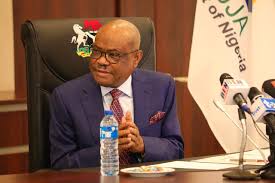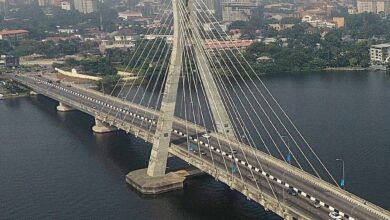Lack of Building Insurance Leads to Economic Losses – NIA

The Controller of Technical at the Nigerian Insurers Association, Soji Oni, has stated that the low compliance rate with building insurance requirements is leading to substantial economic losses.
Oni made this statement at the third edition of the Africa Cashless Payment System Conference in Lagos.
Speaking on the conference theme, ‘Building Safer Cashless Economy and Business Communities,’ Oni emphasized that the absence of building insurance has resulted in numerous economic losses, highlighting the critical role of insurance in mitigating these losses.
“The Federal Government mandates every public building to have a minimum of two insurance policies: occupier’s liability and fire and special peril cover,” he revealed. “The compliance rate for building insurance remains low, which is why strict enforcement is essential,” Oni added.
Discussing the role of telecommunications infrastructure in driving the cashless payment system, the Vice Chairman of the Nigerian Communications Commission, Aminu Maida, highlighted the commission’s key role in expanding digital payment systems.
Maida emphasized that telecom infrastructure and services are fundamental to mobile financial services, noting that increased internet penetration through telecom services enables more advanced mobile money applications and online banking platforms.
“The NCC plays a critical role in enhancing telecom infrastructure to support the digital financial ecosystem. Our aim is to close access gaps nationwide, creating an environment for widespread connectivity that aligns with our vision of building a safer and more secure cashless economy,” he stated.
More Real Estate News
- Lagos Reaffirms Commitment to Completing Housing Projects
- Builders Blame Increase in Building Collapses on ESG Neglect
- How President Tinubu is Tackling Housing Deficit – FHA director
- House of Representatives Approve a N500 Billion Budget Increase for the Housing Ministry.
Maida, represented by the Commission’s Zonal Controller, Tunji Jimoh, highlighted the National Broadband Plan 2020-2025 as a strategic framework designed to improve internet access in both urban and rural areas.
“The plan aims to deliver download speeds of 25 megabits per second in urban areas and 10 megabits per second in rural areas, covering 90 percent of the population with a 70 percent penetration rate.
“This initiative significantly supports the broader cashless economy by ensuring reliable, high-speed internet across Nigeria. Additionally, USSD codes enable mobile money services without needing internet access, which is particularly beneficial in rural areas. The NCC allocates these codes to financial institutions, including FinTech companies, through license exemptions,” he explained.
In her opening remarks, the Chairman of the Foreign Investment Network UK, Oluyinka Fayomi, emphasized the transformative impact of a cashless system, especially for individuals previously excluded from financial services.
Fayomi highlighted that the Cashless Lagos initiative has significantly boosted digital transactions and reduced cash handling costs.
“Africa has seen remarkable growth in mobile money, with 548 million registered accounts, demonstrating the continent’s readiness for digital transformation. These achievements underscore the positive impact of a cashless system on economic growth and financial inclusion,” Fayomi added.
Stay tuned on our website to stay updated on real estate news, gain insights on real estate tips, and enjoy real estate stories where realtors share their experiences. You can also make money by sharing your own story. Don’t forget to drop your comments and join the conversation!






